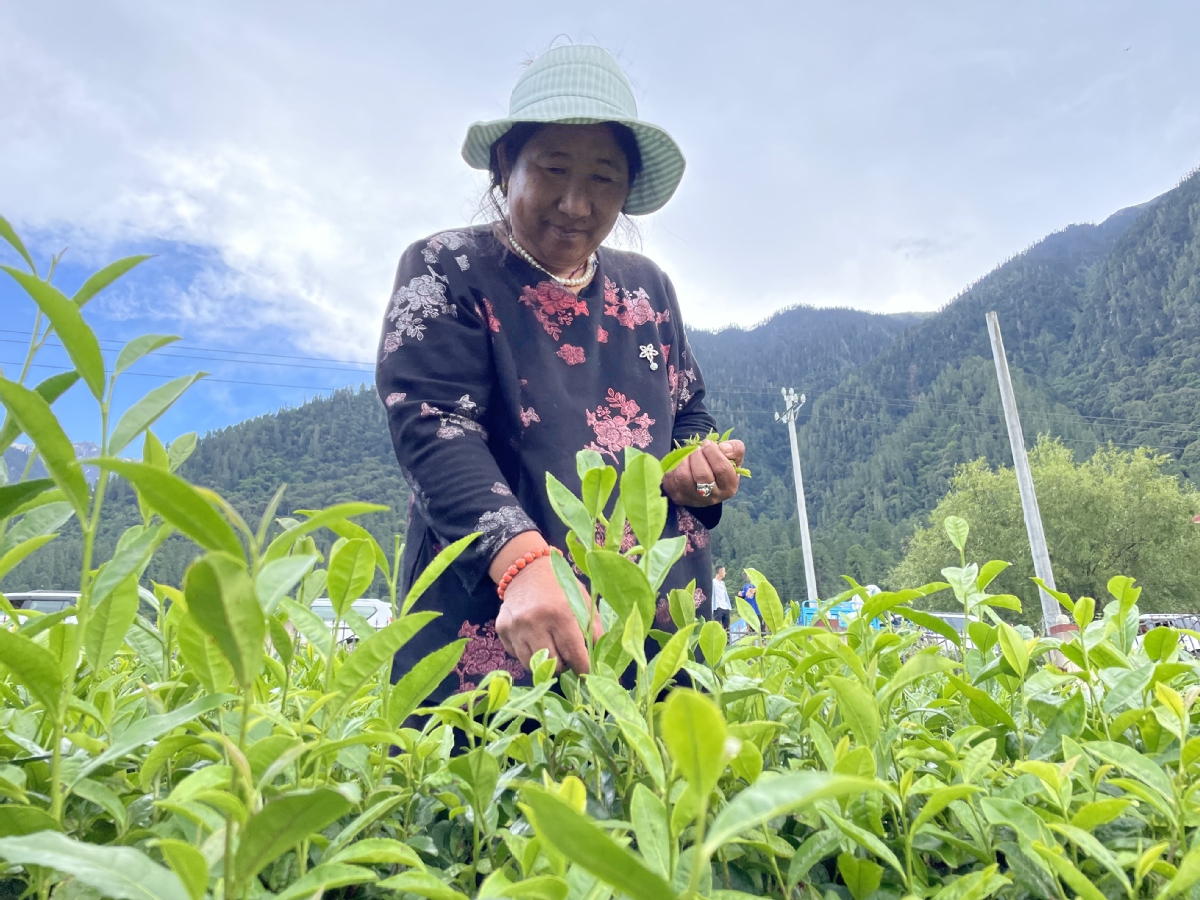Tibetan tea plantation to promote Red culture to boost development


The tea plantation has played an important role in bringing local people more wealth. The plantation is operated by a State-owned company, which employs and pays local farmers and herdsmen to cultivate the fields.
It has an area of 340 hectares, producing black tea, green tea and other tea products. Last year, the farm produced 171,000 kilograms of tea products with an output value of 27.4 million yuan ($4.2 million), and employees received an average annual income of 22,000 yuan, an increase of 37.5 percent over 2019, according to Dai.
The plantation's Red culture — having to do with Communist Party of China history — can be experienced at a small two-story house built of rock and timber. A stone monument stands in front of the building, reading "General Building" in red characters.
The building was the residence and workplace of General Zhang Guohua, army commander of the 18th Corps, a military formation of the People's Liberation Army which entered Tibet in 1950 as the major force of the liberation.























